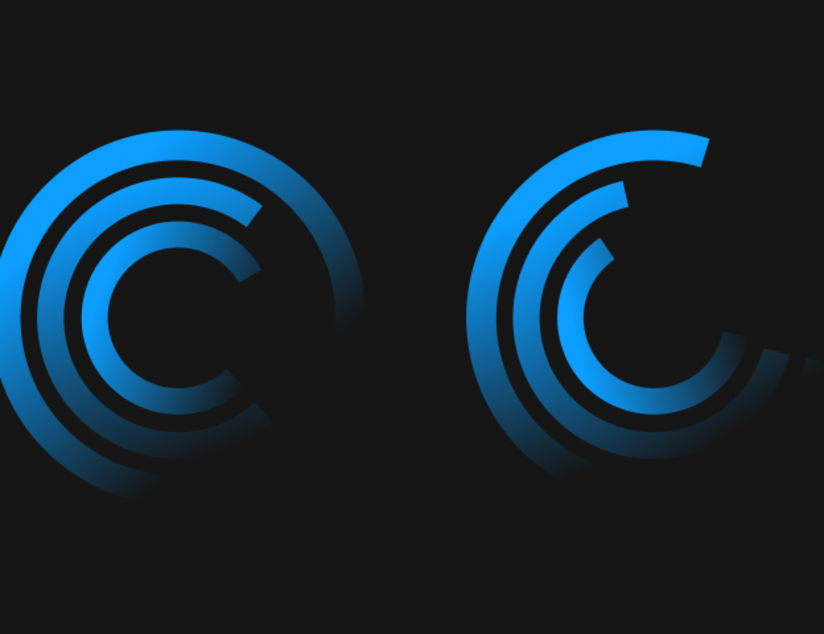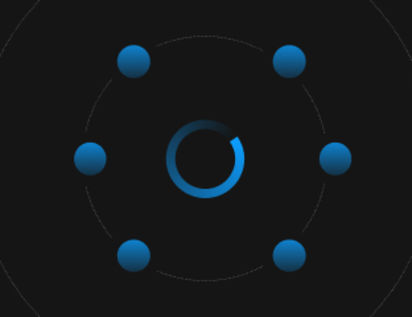Cash positioning software: a game-changer for finance teams


As the name suggests, cash positioning software transforms scattered account data into real-time financial clarity. It is sometimes also referred to as cash flow management software or cash flow forecasting software, although there are nuances which we will explore.
For finance teams under pressure to optimise liquidity, avoid errors, and make faster decisions, automated cash visibility tools are no longer a nice-to-have – they’re a competitive necessity.
Cash flow software market growth
The global cash management system market is projected to reach over $35 billion by 2030. That’s no surprise, given the growing financial pressures facing US businesses . In 2025, SMEs and mid-market companies continue to face macroeconomic challenges, inflation, higher borrowing costs, and late payments – all of which make accurate, daily cash visibility mission-critical.
According to a recent US business finance survey (source: U.S. Bank), 82% of businesses fail due to poor cash flow management. Many organizations are still handling liquidity manually. Over 60% of US mid-sized businesses use spreadsheets like Excel to calculate cash positions – a practice linked to inaccurate forecasts and higher risk
For CFOs and finance leaders looking to strengthen their position in today’s volatile environment, modern cash positioning software offers a scalable, strategic advantage.
What is cash positioning software?
Cash positioning software gives finance teams (everyone from CFOs to Finance Directors and Treasurers) real-time visibility into current bank balances, cash flows, and intra-group liquidity across multiple entities. Rather than logging into individual portals or reconciling static spreadsheets, teams use a single system that automatically aggregates data from multiple accounts – domestic and international – and presents it clearly in a central dashboard.
It acts as the operational backbone for treasury functions, providing an accurate picture of what funds are available, where they’re held, and how they’re being used. Integrated with bank feeds and ERP systems, this software enables better decision-making around payments, borrowing, investing, and short-term planning.
With a platform like Agicap, finance teams no longer rely on stale data or disconnected spreadsheets. Instead, they gain live updates, automated reconciliation, categorisation, and short-term forecasts, within a system that’s purpose-built for visibility and control. The priorities of US CFOs and finance leaders!
This is particularly important for businesses with multiple subsidiaries or banking partners. Fragmented data is a common pain point for finance leaders, and one that only worsens with growth. By replacing manual workflows with real-time tools, companies gain a consistent, reliable, and audit-ready view of their financial position.
Common visibility challenges for finance teams
Despite the importance of cash management, many businesses still struggle with visibility. A 2025 PwC Global Treasury Survey shows treasurers are under increasing pressure to provide up-to-the-minute cash data, but lacking the tools to do so consistently.
According to Strategic Treasurer , only 70% of enterprises have daily or real-time visibility into their cash positions. The remaining 30% operate with limited insight, making it difficult to assess liquidity, avoid overdrafts, or deploy surplus cash effectively.
Key challenges include:
- •
Manual bank account monitoring. Finance teams must log into multiple portals and copy figures into spreadsheets.
- •
Slow and error-prone reconciliation. Data entry mistakes, broken formulas, and inconsistent templates introduce risk.
- •
Limited forecasting. Forecasts are based on static, outdated inputs and lack scenario planning tools.
- •
Disparate systems. No single source of truth means different teams rely on different versions of the data.
As finance leaders will know all too well, the result is often a seemingly endless cycle of firefighting. That ranges from missed investment opportunities, emergency short-term borrowing, and an inability to confidently steer financial strategy.
Key benefits of cash positioning software
Cash positioning software directly addresses these pain points by replacing fragmented cash management processes with real-time data and automated workflows.
Here’s how it could help you and your team:
- •
Real-time visibility. All accounts – across banks, currencies, and legal entities – are updated automatically. You always know your true cash position.
- •
Fewer manual tasks. No more spreadsheet reconciliations mean that finance teams save hours each week and reduce dependence on key individuals.
- •
Improved accuracy: Automated feeds lower the risk of human error and introduce stronger internal controls.
- •
Rolling forecasts. Platforms like Agicap continuously update forecasts based on real bank activity and ERP data.
- •
Smarter liquidity decisions: With better visibility, you can rebalance, invest, or repay at exactly the right moment – especially valuable when interest rates are high.
- •
Audit trail & access control: Role-based permissions and full logging support governance, compliance, and external reporting needs.
According to Mordor Intelligence, businesses using AI-enhanced forecasting software report a 50% lift in forecast accuracy. And with 91% of spreadsheet-based forecasts linked to higher overdraft charges, the financial case for automation is clear.
Manual vs. software-based cash positioning: a side-by-side comparison
To briefly illustrate the difference, here’s how cash positioning works using traditional methods versus modern software:
Aspect | Manual Cash Positioning (Spreadsheets) | Cash Positioning Software (e.g. Agicap) |
|---|---|---|
Data Consolidation | Manual collection from bank portals, often fragmented | Automated aggregation across all accounts and entities |
Timeliness of Info | Delayed (daily/weekly); can’t reflect real-time activity | Updated in real time or on-demand |
Accuracy & Errors | High risk of input errors, broken formulas, missed data | Minimal errors thanks to direct data feeds |
Effort & Efficiency | Time-intensive; key-person dependency | Automation frees teams to focus on analysis |
Visibility & Insight | Fragmented, no single source of truth | Central dashboard with drill-down options |
Forecasting & Planning | Static, slow to update, poor scenario analysis | Rolling forecasts with integrated what-if tools |
Decision-Making | Reactive, based on lagging info | Proactive and data-driven |
Audit & Control | Difficult to trace changes; poor version control | Full audit trail and user access permissions |
Core features to look for in cash positioning software
When evaluating a cash positioning solution, finance leaders should focus on a handful of core capabilities that define long-term value and day-to-day usability. These include:
1. Real-time dashboards
The ability to view live bank balances and net positions in one place – across entities, currencies, and banks – is essential. The dashboard should allow filtering and drill-downs so that both operational users and executives can get the right level of insight at a glance.
2. Multi-bank and multi-entity consolidation
For businesses operating internationally or across business units, the software must support aggregation across banks and legal structures.
3. Seamless data integration
The platform should link directly with your bank feeds and ERP systems via APIs. This ensures that financial data is accurate, up to date, and available without manual intervention.
4. Customisable reports and workflows
Not every stakeholder needs the same level of detail, or is authorised to access certain data. The system should support tailored reporting for CFOs, group controllers, operational finance teams, and auditors – while maintaining a single data set underneath.
5. Role-based access control
Sensitive financial data must be securely managed. A strong platform includes permission controls that restrict access based on role or location and maintains a log of all changes and approvals.
Why Agicap is built for modern cash positioning
Agicap is designed from the ground up to help finance teams take control of their liquidity. It solves real pain points such as fragmented data, decentralised operations, and manual workload. These are especially common challenges in mid-sized and growing companies.
Key Agicap Features That Support Cash Visibility
- •
Instant bank sync. Agicap connects to over 3,000 banks across Europe and the UK, allowing real-time bank account syncing without the need for file uploads or downloads.
- •
Live forecasting. No more end of day data. Cash flow forecasts update automatically as new data arrives. Teams can adjust parameters, create rolling forecasts, and test what-if scenarios with confidence. Explore Agicap’s forecasting tools.
- •
Multi-currency support. For companies operating in multiple regions, Agicap handles currency translation, FX rates, and consolidated views across geographies. Everything in one place.
- •
Custom dashboards. These can be tailored to roles and responsibilities. Finance leads get strategic insights, while treasury or accounting staff can drill into transaction-level detail as needed.
- •
Receivables and collections automation. Agicap goes beyond visibility to offer actionable ways to improve the cash conversion cycle. By automating collections and categorising receivables, for example, it helps companies unlock trapped cash.
How Agicap compares versus Trovata or Sage XRT
Feature / Capability | Agicap | Trovata | Sage XRT Treasury |
|---|---|---|---|
Real-time cash visibility | Yes – real-time updates via live bank feeds | Yes – API-based real-time bank data | Yes – real-time cash positioning via direct bank connectivity |
Multi-bank integration | 3,000+ banks integrated across UK and Europe | Focused on large corporate banks (e.g. J.P. Morgan, Bank of America) | Yes – strong global multi-bank connectivity |
Rolling forecasts | Rolling forecasts auto-updated with actuals | Yes, with emphasis on enterprise-level FP&A | Yes – rolling forecasts with manual & automated input |
Scenario planning | Built-in scenario planning tools | Supports multiple scenario types | Limited or manual what-if capabilities |
User-friendly interface | Designed for non-technical finance users | More complex – built for tech-savvy teams | Advanced interface geared toward treasury professionals |
Integration with accounting software | Integrates with Xero, Sage, QuickBooks and others | ERP-focused (e.g. Oracle, SAP) – less SME-friendly | Native Sage compatibility; limited third-party integrations |
AI-driven categorisation | High categorisation accuracy using rule-based and AI models | Some AI categorisation – tailored to large enterprises | Manual categorisation and tagging |
Customer support & onboarding | Dedicated onboarding with UK-based support team | Support primarily geared toward US customers | Support varies depending on plan |
Pricing transparency | Transparent, scalable pricing plans based on company needs | Custom pricing – less transparency online | Custom & modular pricing, typically via Sage partners |
Sources: publicly available information from Agicap, Trovata, Sage, and third-party reviews from Capterra, SpotSaaS, Software Advice, and Abacum.
Read more about the best cash flow management software
Check out our guide to the top TMSs for an overview of how these systems and more compare when it comes to cash positioning.
Real customers using Agicap's cash flow forecasting software
SmarterTravel – transforming cash flow visibility in travel tech
Company profile:
SmarterTravel is a UK-based travel tech business handling high volumes of pre-booking customer payments and post-trip supplier settlements – creating timing mismatches and liquidity complexity.
The challenge
- •
Timing mismatch between customer payments and supplier payouts created cash flow ambiguity
- •
Unclear which cash was available vs. held as liability
- •
Operated with a thin cash buffer – needed precise runway visibility
- •
Manual Excel models couldn’t update forecasts based on actuals or support daily decisions
- •
Strategic decisions were being made on outdated or incomplete information
Agicap’s solution
- •
Real-time visibility into cash position across accounts and liabilities
- •
Rolling cash flow forecasts updated automatically
- •
Easy scenario modelling and reporting for leadership
- •
Automated categorisation of inflows and outflows
Results delivered
- •
Time spent on cash flow planning reduced from 6–8 hours/week to 10–15 minutes/day
- •
Improved strategic decision-making based on accurate daily data
- •
Greater confidence in liquidity management and financial runway
Sayantan Bhowmick, VP of Finance at SmarterTravel comments: "The key benefit of the Agicap platform is you're going to have a full 360 degree transparency of your cash flow situation. You will have the clear understanding of how you're spending money, how you're making money and how long your runway is. It's very important for a startup like ours and it is going to enable you to make the right decision for your company."
Read the full case study for SmarterTravel.
Scheppach Group – Unifying cash management across borders
Company profile:
Scheppach Group is a growing international manufacturing business with 30 bank accounts across 7 banks in 3 countries.
The challenge:
- •
Fragmented cash data across local entities
- •
Manual bank reconciliation in spreadsheets
- •
Delays in decision-making and short-term borrowing
- •
Inability to forecast liquidity accurately
Agicap's solution:
By adopting Agicap’s cash management platform , Scheppach automated their cash consolidation process and replaced manual workflows with real-time dashboards.
Results delivered:
- •
90% of transactions auto-categorised with AI
- •
2 hours saved per day per employee on reconciliation tasks
- •
Complete view of liquidity across all accounts – full consolidation of 30 bank accounts into a single dashboard
- •
Improved forecasting accuracy and data quality
- •
More time for analysis and strategic planning
Peter Konz, Head of Finance at Scheppach, comments: "Agicap has generally brought many improvements for us in "daily doing". Above all, this includes time savings for our employees of up to two hours per day, reduced susceptibility to errors and the categorisation of our transactions, where we can now apply 90% directly to our expense categories automatically."
Take control of your cash position with Agicap
Agicap equips finance teams with the tools they need to monitor liquidity in real time, consolidate cash across entities and currencies, and automate core processes. With live bank integrations and smart forecasting built in, it transforms cash positioning from 'just another manual task' into an opportunity to demonstrate strategic leadership.
Start Your Free Trial: Experience how Agicap can simplify cash flow management and empower your finance team with total confidence – no commitment required.
FAQ
What is cash management software?
As outlined, cash management software is a digital tool that helps businesses track, analyse and optimise their cash inflows, outflows and liquidity. It typically includes features such as cash positioning, forecasting, multi-bank consolidation and payment reconciliation. The overall goal is to give finance teams real-time oversight of available cash and greater control over short-term financial decisions.
What is cash position management?
Cash position management is the process of monitoring and controlling an organisation’s current cash balances across all accounts and entities. As the name suggests, it includes gathering account data daily, performing intra-group transfers, identifying idle cash, and ensuring enough liquidity is available for operational needs. Effective cash position management is said to enable better decision-making around short-term funding, investments, and risk mitigation.
What is the best cash flow software for individuals rather than businesses?
For individuals and sole traders, cash flow software typically focuses on budgeting, expense tracking, and visibility into income and savings. For personal use in the US, popular tools include Mint, YNAB (You Need A Budget), Personal Capital, Quicken, and PocketGuard. These apps connect securely to your financial accounts to track spending, set budgets, and encourage smarter saving . It s worth noting, though, that these platforms are designed for individual use and are not suitable for business cash management, which requires more advanced features such as multi-entity consolidation or integration with accounting systems.




